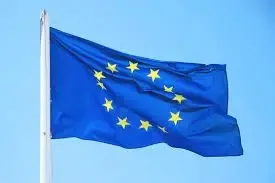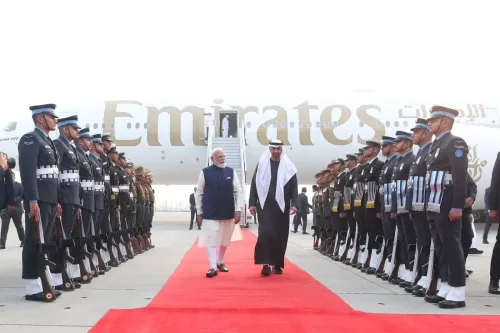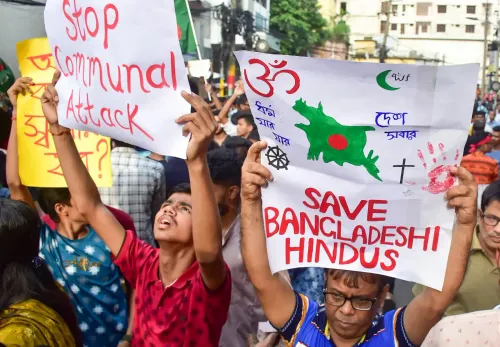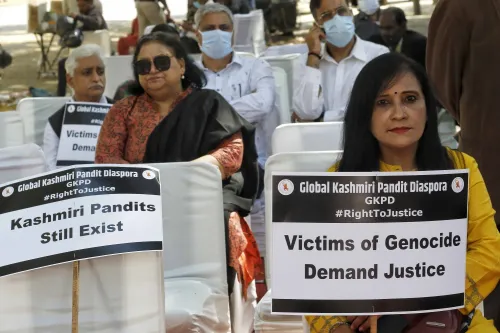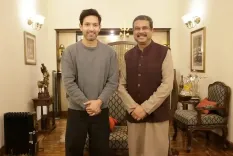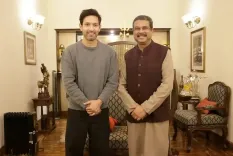Can Wang Yi's Visit to India Strengthen Political Mutual Trust?
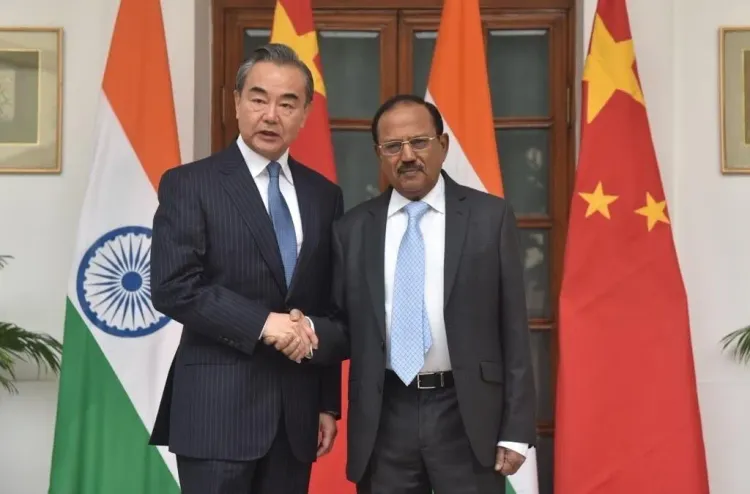
Synopsis
Key Takeaways
- Wang Yi's visit aims to enhance political mutual trust.
- Focus on implementing agreements made by Xi Jinping and Modi.
- Discussions will include border issues and trade relations.
- Significant timing before PM Modi's upcoming visit to China.
- Previous engagements resulted in agreements on LAC patrols.
Beijing, Aug 18 (NationPress) The visit of Chinese Foreign Minister Wang Yi to India is anticipated to foster collaboration between the two nations in executing the agreements made by Chinese President Xi Jinping and Prime Minister Narendra Modi last year, according to a statement from the Chinese Foreign Ministry on Monday.
Wang Yi arrived in India late Monday afternoon for a two-day trip, during which he will engage in a new round of Special Representatives (SR) dialogue concerning the boundary issue with National Security Advisor Ajit Doval.
The discussions could encompass a variety of critical topics, including the border situation, trade, and the resumption of flight services.
When questioned about China's expectations for Wang Yi's visit and the 24th Round of Talks between the Special Representatives of China and India regarding the boundary question, Chinese Foreign Ministry spokesperson Mao Ning commented that China is eager to utilize this opportunity to collaborate with India in fulfilling the important consensus reached by the leaders of both nations. This includes maintaining high-level exchanges, enhancing political mutual trust, strengthening practical cooperation, managing differences effectively, and promoting the ongoing, healthy, and stable development of China-India relations,” as highlighted by Chinese Ambassador to India Xu Feihong on X during the media briefing in Beijing.
The Chinese Foreign Minister is scheduled to meet with External Affairs Minister S Jaishankar and also pay a visit to Prime Minister Narendra Modi on Tuesday. This meeting is particularly significant as it occurs just before PM Modi's upcoming trip to China for the Shanghai Cooperation Organisation (SCO) Summit in Tianjin later this month.
This marks PM Modi's first visit to China since the Galwan clash in 2020, which severely impacted bilateral relations. The recent breakthrough in discussions, the first since the Galwan Valley incident between the troops of both nations at the Line of Actual Control (LAC) in June 2020, was facilitated by an agreement on patrolling along the nearly 3500-km LAC to resolve the four-year-long border standoff.
In July, EAM Jaishankar visited China to participate in the SCO Meeting of Foreign Ministers in Tianjin, where he also had discussions with his Chinese counterpart and met Xi Jinping alongside fellow SCO Foreign Ministers.
Previously in June, Defence Minister Rajnath Singh attended the SCO Defence Ministers Meeting in China. India refrained from endorsing the joint declaration at this meeting, citing the omission of terror-related concerns as a key issue.
During this visit, Singh met his Chinese counterpart, Admiral Don Jun, where they had a constructive exchange regarding bilateral relations.
In the same month, NSA Ajit Doval also traveled to China for the 20th Meeting of the SCO Security Council Secretaries. In his address during this meeting, he emphasized the importance of avoiding double standards in the fight against terrorism and taking decisive actions against entities like LeT, JeM, and their affiliates while dismantling their terror ecosystems.


